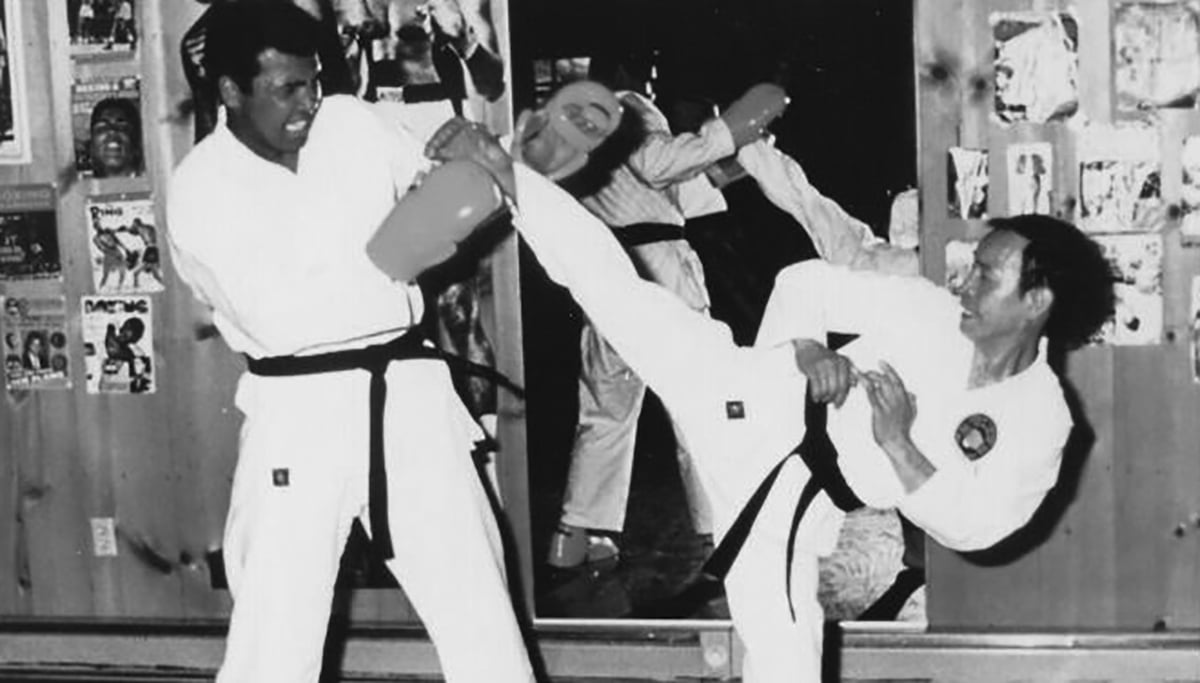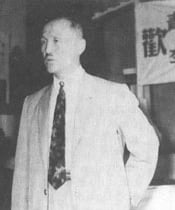The Jhoon Rhee Story

Part Two: Dreaming of America (1945 – 1950)
For the Rhee family, the years after World War II felt like a return to normal life. Still, there were differences, and for the teenaged Rhee, one of the most exciting changes was that Korean martial arts could now be taught openly.

Grandmaster Won Kook Lee.
During Japanese colonial rule, traditional Korean martial arts, like almost all aspects of Korean identity, had been banned. When the occupation ended in 1945, Korean martial arts schools began to open. The first of these schools was founded by Grandmaster Won Kook Lee, and the style that he taught, though b ased on traditional Korean martial arts, was something new. Eventually called Tae Kwon Do, the new style incorporated various influences, combining combat techniques, self-defense, sport, and exercise.
With the opening of these schools, Jhoon Rhee was finally able to achieve his longtime goal of studying martial arts. In 1947, when Rhee was 15, he enrolled in Chung Do Kwan, Grandmaster Won Kook Lee’s Tae Kwon Do academy in Seoul. For the first three months, Rhee didn’t tell his father that he had enrolled—although Korean martial arts could be studied openly again, martial arts in general had a very poor reputation and were considered little better than street fighting. When Rhee’s father came to visit his son in Seoul, he was upset to discover that Rhee was studying Tae Kwon Do, but he was persuaded by Rhee’s uncle to allow the teenager to continue training.

The Chung Do Kwan studio in 1948. Rhee is circled in the front row.
Another exciting change for Rhee, now that the Japanese occupation had ended, was up on the big screen: American movies were being shown in local theatres. Rhee had to sneak in, at first, because high schoolers weren’t allowed to buy tickets.
Rhee says he was captivated by the beautiful American actresses—especially the blondes. In fact, he was so taken with the images on the screen that he set himself a new goal: he would some day marry a blonde. The only problem with this decision, as Rhee saw it, was that there were no blondes in Korea. So he resolved, as he sat there in the darkened theatre, that he would eventually move to America.
But how, Rhee wondered, could he make a living in a whole different country? How could he support a family? The answer, Rhee realized, lay in the martial arts training he had waited so long to begin. He would introduce Tae Kwon Do to America and earn his living there as an instructor.
With his new dream in place, Rhee immediately began to study English with intense determination, and he was soon recognized by teachers and classmates alike as his school’s most advanced English student. Almost no one knew that he was studying Tae Kwon Do just as hard.
Meanwhile, Rhee’s small size continued to make him a target for bullies. By the eleventh grade, he had earned his brown belt in Tae Kwon Do, but few of his classmates knew about his training, and he was still picked on constantly. That all changed when, one day at school, a notorious bully grabbed a pencil out of Rhee’s hand and was rude when Rhee asked for its return. Rhee decided it was time to put his training to the test. He told the bully that they should meet after classes.
Rhee was nervous as the hour of the meeting approached—he wondered if his training would allow him to defend himself in an actual confrontation. The bully arrived and wasted no time starting the fight. He swung at Rhee first, but Rhee quickly countered, punching the boy in the eye and kicking him in the throat. Muttering “you got me,” the bully immediately gave up.
At school the next day, when the bully showed up with a black eye, word of the fight quickly spread. Rhee was suddenly seen in a different light—no longer was he the little kid, the target, a victim picked on by bullies. Now he was respected. And with that respect, Rhee’s confidence grew. His dream of teaching Tae Kwon Do in America felt like something he could actually achieve. His next step was college; he had been accepted at Dong Kook University after graduating high school in 1950.
But Rhee’s life, and the life of his country, was about to take a turn.
